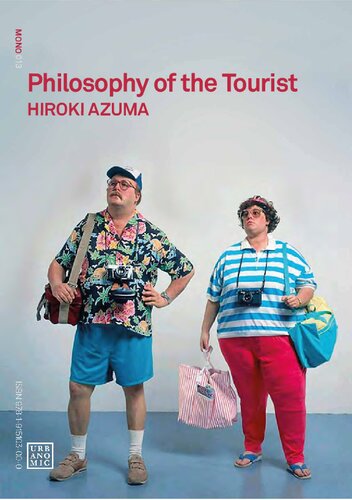

Most ebook files are in PDF format, so you can easily read them using various software such as Foxit Reader or directly on the Google Chrome browser.
Some ebook files are released by publishers in other formats such as .awz, .mobi, .epub, .fb2, etc. You may need to install specific software to read these formats on mobile/PC, such as Calibre.
Please read the tutorial at this link: https://ebookbell.com/faq
We offer FREE conversion to the popular formats you request; however, this may take some time. Therefore, right after payment, please email us, and we will try to provide the service as quickly as possible.
For some exceptional file formats or broken links (if any), please refrain from opening any disputes. Instead, email us first, and we will try to assist within a maximum of 6 hours.
EbookBell Team

4.1
90 reviewsTourism is a characteristically modern phenomenon, yet modern thinkers have tended to deride the tourist as a figure of homogenizing globalism. This philosophical study considers the tourist anew, as a subject position that enables us to redraw the map of globalized culture in an era increasingly in revolt against the liberal intellectual worldview and its call for the welcome of the "Other."
Why has the tourist proved so resistant to philosophical treatment, asks Hiroki Azuma. Tracing the reasons for this exclusion through the work of Rousseau & Voltaire, & subsequently in Kant, Carl Schmitt, Alexandre Kojève, Hannah Arendt, & Hardt & Negri, Azuma contends that the figure of the tourist has been rendered illegible by becoming ensnared in a series of misleading conceptual dichotomies & a linear model of world history.
In the widening gap between the infrastructure of globalization & inherited ties of local & national belonging, Azuma’s retheorization of the tourist presents an alternative to the choice between doubling down on local identity & roots, or hoping for the spontaneous uprising of a multitude from within the great networked Empire.
For the tourist is the subject capable of moving most freely between the strata of the global and the local. With explorations of the connection between tourism & fan fiction, contingency & "misdelivery," cyberspace and the uncanny, & dark tourism, Azuma’s inventive & optimistic philosophical essay sheds unexpected new light on a mode of engagement with the world that is familiar to us all.